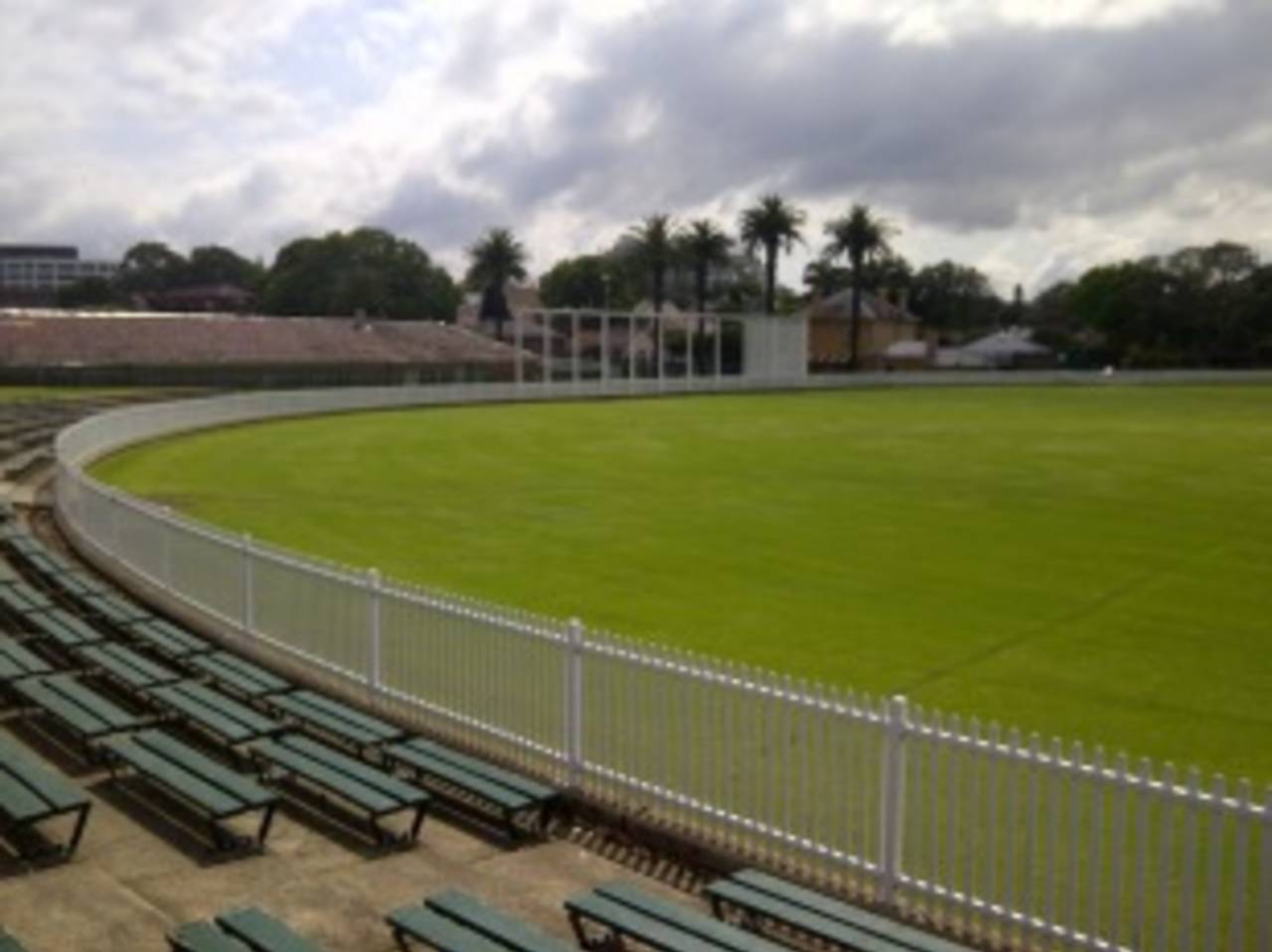A sporty paradise
There is one thing South Africans and Australians have in common. People from both countries love sport. And for the most part, both are pretty good at it
Firdose Moonda
25-Feb-2013

Pratten Park cricket field, where Michael Clarke began his career in cricket • ESPNcricinfo Ltd
There is one thing South Africans and Australians have in common. People from both countries love sport. And for the most part, both are pretty good at it.
Before last year, they were the only two countries to have won two rugby World Cups each and although Australia's record in major cricket tournament far exceeds South Africa's, they have both been Test No.1s. Of course there is one major difference between them as well. While South Africa are dominant in some things, Australia actually excel at everything.
Beyond those two sports, Australia's footballing record has regularly seen them punch above their weight, they have performers who continually impress at Tennis Grand Slams - most recently Samantha Stosur - and they always return with armfuls of medals from Olympic Games. Apart from golf, South Africa cannot compete with them on those levels.
South Africans will comfort themselves by saying it's because Australia have more resources, be it money or infrastructure and they are not wrong. Before I came on this tour everyone from Andrew Hudson to Boeta Dippenaar stressed that I would be impressed by the facilities and only one look at the gym in the Sydney Cricket Ground's sport's complex confirmed it. Quite simply, it is magnificent.
Modern equipment fills the area, a pool so clear it makes the Aegan sea look muddy, tennis courts that are always occupied and people who obviously make use of all of these things. In 2009, Osman Samiuddin, who was the Pakistan editor of this site, visited South Africa for the first time and said he felt like he had walked into a fitness centre. If South Africa is the gym, Australia is a demonstration of what going to the gym does to and for you: makes you look damn good and want even more gym.
I expected to see this sporty paradise. Perhaps not to this degree, but I was prepared for something along these lines. What surprised me was that the involvement in physical activity is not only for the super-rich and middle class. Those on the lower rungs are not just encouraged to participate but actually have the means to.
The suburb of Ashfield, where I have spent the last four days, showed me that. Ashfield is quaint without being spectacular and does not offer much in the way of recreation, particularly not in the way a city centre does. It has been described to me as a fairly working-class area.
A kilometre and a half away from my guesthouse is a sports club. It does not have the glitz of the SCG's attachments but Pratten Park has a children's playground, four grass tennis courts (not easy facilities to maintain) and a pristine cricket field with one of the best-kept outfields I have seen. Michael Clarke began his cricket career here with Western Suburbs.
That surprised me. Having sat in many a Clarke press conference, my impression of him was of a posh, silver-spooned man but Clarke is actually from humbler beginnings. Liverpool, which is even further west than Ashfield and lower down on the social scale, is where he comes from. More important than his success story is that he has made an effort to stay connected to his past.
Three weeks ago while team-mates were involved in Champions League commitments, Clarke turned out to play a match for his club Western Suburbs who he had not represented in about six years. It made him the first Australian captain since Steve Waugh in 2003 to take part in a Sydney grade cricket match. He scored 38 before being caught by the opposition captain, Norths Scott Rodgie, off his own bowling.
The Herald Sun, a local paper, reported that Clarke was there because he believes he owes his career to the club system and wants to give back. He told them, "Without Western Suburbs I wouldn't be playing for Australia. First-class wise, I think the Australian system is the most successful and strongest competition in the world if you ask players who have played all around the world and that comes from competitive club cricket." The newspaper also said Clarke signed autographs for local children for an hour during the lunch break.
These are not things we see today's sportsman doing unless they are organised by a sponsor. In an age where professional cricketers, much like their footballing counterparts, are becoming untouchables, that may be one of the most important ways to continue to cultivate a sporting culture.
Firdose Moonda is ESPNcricinfo's South Africa correspondent